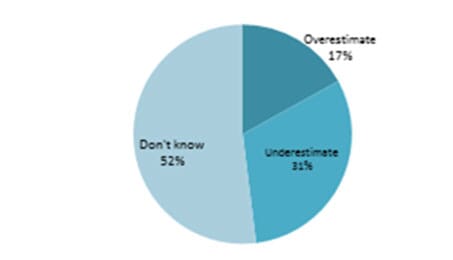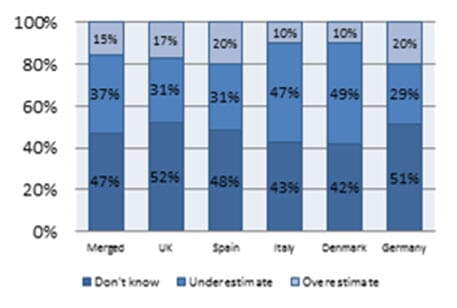Overfishing, or fishing too much, is one of the most critical issues facing our oceans.
The fate of UK fisheries was a key feature of the Brexit debate with leading Brexit campaigners Boris Johnson and Nigel Farage frequently citing it as an example of EU mismanagement, even though the UK has always played an active role in setting catch limits.
“Brexit is an opportunity for the UK to revitalise its fishing industry, stabilise threatened ecosystems and create thousands of new jobs but this will only happen if overfishing is stopped. The UK government must fulfil the promises of the Brexit campaign that vowed British fisheries can thrive without EU guidance. This will only happen if overfishing is stopped,” explains Lasse Gustavsson, Executive Director, Oceana in Europe.
Interestingly, although 46 per cent of respondents are not confident Brexit will be a positive influence on stopping overfishing, this figure rises to 60 per cent in Scotland. The Scottish fishing industry contributes up to two-thirds of the total fish caught in the UK and the country voted heavily to remain in the EU in last year’s referendum.
Shocking lack of public awareness about overfishing
The poll also revealed a shocking lack of public knowledge about overfishing in Europe. A recent report commissioned by Oceana revealed that 64 per cent of European fish stocks are currently overfished.
However, when asked, 83 per cent of Brits either underestimated (31 per cent) or said they didn’t know (52 per cent) this figure.
Overfishing, or fishing too much, is reducing year after year the amount of fish available in the water and threatening marine ecosystems and fishers’ livelihoods.
If overfishing was stopped and fish resources were managed sustainably, European fisheries could increase catches by almost 60 per cent more fish in less than 10 years or 5 million tonnes.

British response when asked to estimate the number of overfished stocks in Europe compared to actual figure

Comparison between countries included in study


